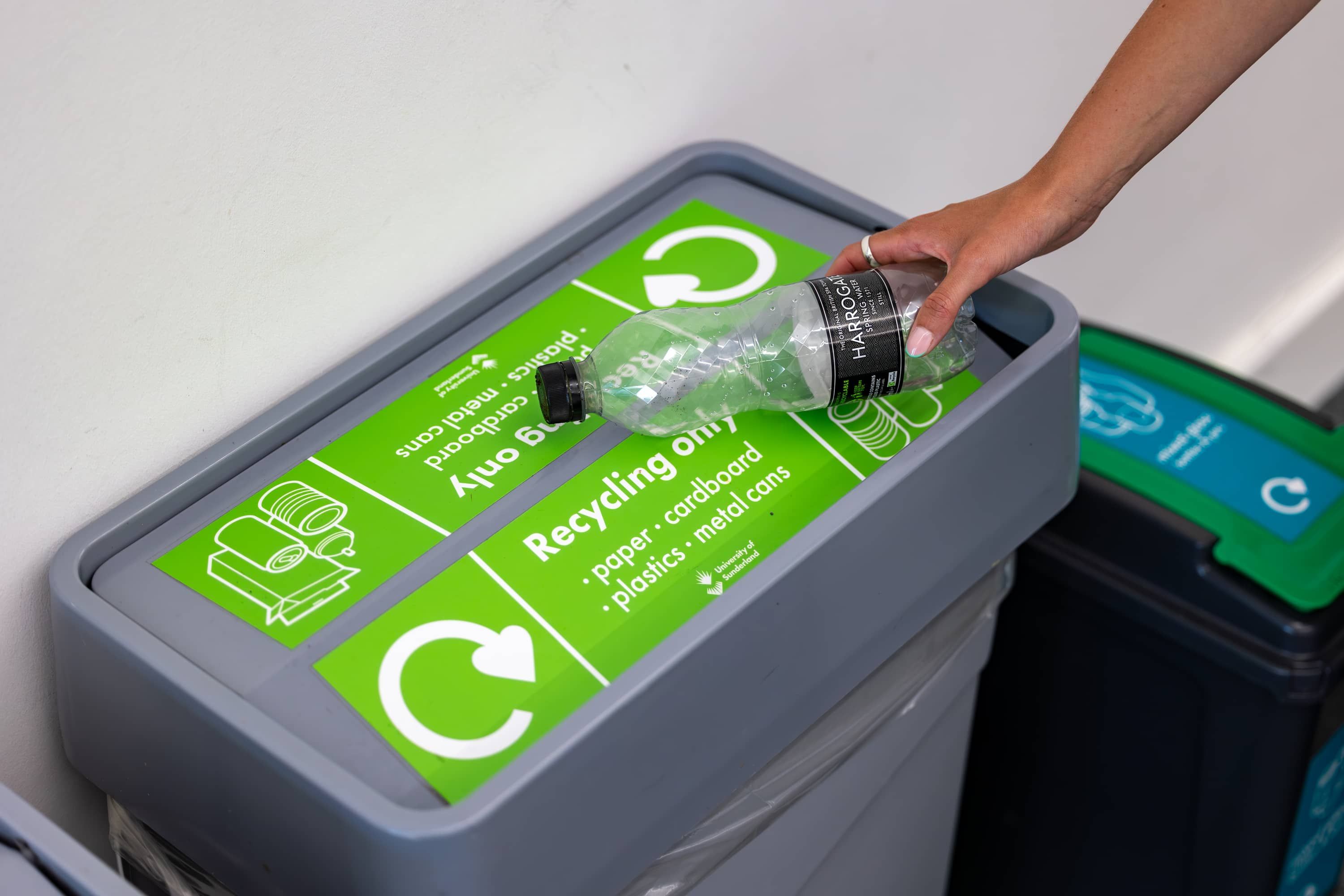This is for all non-recyclable domestic waste. At the moment this also includes all food waste, both cooked and uncooked.
This is also the correct bin for any type of disposable coffee cup. Coffee cups cannot go in recycling bins – even if they are labelled eco-friendly, compostable or biodegradable.
We do not send any waste to landfill. Waste that cannot be recycled is incinerated in an energy-from-waste facility.
Mixed recycling
This is for clean recycling including tins, cans, paper, and plastic pots, tubs, and trays.
Glass
For rinsed glass bottles and jars.
Paper
There are separate bins for paper in areas where larger amounts of paper may be generated.
Food Waste
Including tea bags, plate scrapings, raw and cooked food. Collected and converted into renewable resources in an anaerobic digester.
Confidential waste
This is for paper waste that contains confidential information. This is shredded before being recycled.
Batteries
Collection points for used batteries can also be found in most buildings.

Other types of waste the University needs to dispose of includes waste electrical items, hazardous wastes such as chemicals and oils, gardening, and grounds waste, amongst other things.


